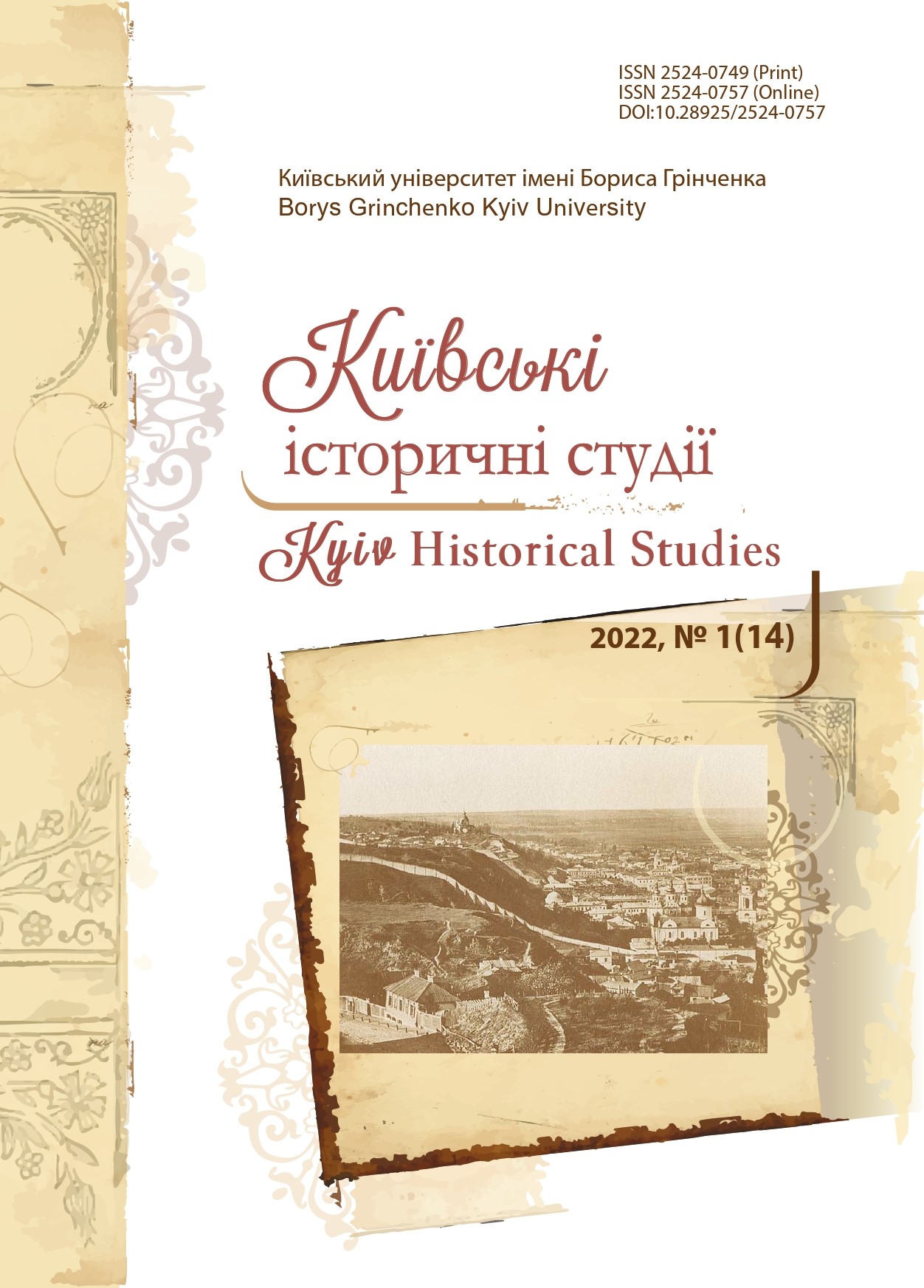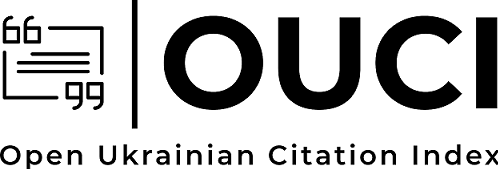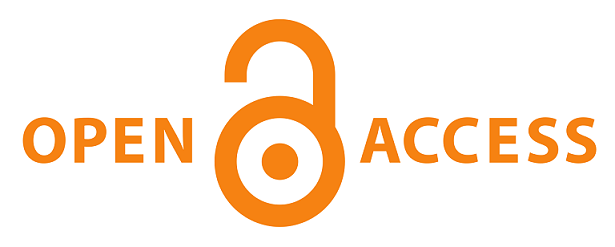In the communication environment of Ukrainian intellectuals in the mid-19th century: Opanas Markovych’s letters to Hryhoriy Galagan
DOI:
https://doi.org/10.28925/2524-0757.2022.115Keywords:
Opanas Markovych, Hryhoriy Galagan, epistolary, Ukrainian nobility, Ukrainian national-cultural movement of the 19th centuryAbstract
The article for the first time publishes in full four letters of the Ukrainian philologist, folklorist, writer Opanas Vasyliovych Markovych (1822–1867) to Hryhoriy Pavlovych Galagan (1819–1888), one of the most influential landowners of the Left-bank Ukraine and a prominent public figure. Opanas Markovych is one of those representatives of the Ukrainian intellectual community of the middle of the 19th century, whose contribution to the development of National culture has not been yet appreciated. The publication of Opanas Markovych`s correspondence with Hryhoriy Galagan is intended to deepen the understanding of the outlook and ideological priorities and life practices of this person and contribute to an understanding of how the system of networking of the Ukrainian intelligentsia in the middle of the 19th century. The letters, dating from 1856–1858, are evident behind a number of issues relevant both personally for the author and the addressee, as well as for the circle of liberally minded Ukrainian nobility, to which these people belonged. Ethnographic search, the recording and publication of Ukrainian song folklore, the appearance of the works of Marko Vovchok, and the discussion of Panteleimon Kulish’s novel “The Black Rada” are the leading themes of the epistolary. References to the family life of the correspondence participants create a domestic-historical context of their communication attention should be paid to the fact that the letters are written in Ukrainian, so in this regard, their publication is important for a wide range of scholars of humanities. Therefore, their publication is important for a wide range of scholars of humanities – not only historians, but also philologists, specialists in sociolinguistics and others. The language of the letters, with a large number of folk idioms, using archaic grammatical forms, represents the way of the Ukrainian literary language in the 19th century.
Downloads
References
Denis, M. (2012). Markovychi: nemyrivskyi slid. Vinnytsia [in Ukrainian].
Doroshkevych, O. (1928). Marko Vovchok. Biohrafichna rozvidka. In O. Doroshkevych (Ed.), Tvory Marka Vovchka (Vol. IV, pp. 7–240), Kyiv [in Ukrainian]. https://elib.nlu.org.ua/view.html?&id=10835
Holubchyk, H. D. (2003). Rid Markovychiv-Markevychiv u kulturno-hromadskomu zhytti Ukrainy: “nova simeina istoriia” [Markovich-Markeviches in cultural-social life of Ukraine: “New family history”]. Extended abstract of Candidate’s thesis, Dnipropetrovsk [in Ukrainian].
Kotsiuba, A. I. (1963). Afanasii Vasilievich Markovich – vydaiushchiisia ukrainskii folklorist. Extended abstract of Candidate’s thesis, Kiev [in Russian].
Miiakovskyi, V. (1928) Liudy sorokovykh rokiv (Kyrylo-metodiivtsi v yikh lystuvanni). Za sto lit, 2, 33–98 [in Ukrainian].
Miiakovsky, V. (1927). Opanas Markovych u Kyrylo-Metodiivskomu bratstvi. Za sto lit, 1, 20–45 [in Ukrainian].
Polovets, V. M. (2019). Markovych Oleksandr Mykhailovych. Chernihiv: Prosvita [in Ukrainian].
Samoilenko, H. V. (2010). Teatry i aktory Pivnichnoho Livoberezhzhia Ukrainy. Nizhyn [in Ukrainian].
Svitlenko, S. I. (2013). Ukrainskyi natsionalnyi rukh “dovhoho XIX stolittia” v konteksti neliniinoi istorii. Visnyk Dnipropetrovskoho universytetu, Seriia Istoriia ta arkheolohiia, 21, 3–9 [in Ukrainian].
Histsova, L. Z., & Serhiienko, H. Ya. (Comps.). (1990). Sprava O. V. Markovycha. In O. O. Franko (Ed.) Kyrylo-Mefodiivske tovarystvo (Vol. 3, pp. 79–150), Kyiv [in Ukrainian].
Tomazov, V. (1994). Markovychi. Starozhytnosti, 1–2, 24–26; 3–4, 26–28 .[in Ukrainian].
Yekelchyk, S. (2001). Te Nation’s Clothes: Constructing a Ukrainian High Culture in the Russian Empire, 1860–1900. Jahrbücher für Geschichte Osteuropas, Neue Folge, 49 (2), 230–239 [in English]. https://www. jstor.org/stable/41053011
Published
How to Cite
Issue
Section
License
Copyright (c) 2022 Марина Будзар, Тетяна Терещенко

This work is licensed under a Creative Commons Attribution-NonCommercial-ShareAlike 4.0 International License.
Authors who publish in this journal retain the right of authorship of the work and give to the journal right of first publication of this work under the conditions of Creative Commons: Attribution-NonCommercial-ShareAlike 4.0 International (CC BY-NC-SA 4.0), which allows others freely distribute the work published with reference to the authors of the original work and the first publication of this magazine.














